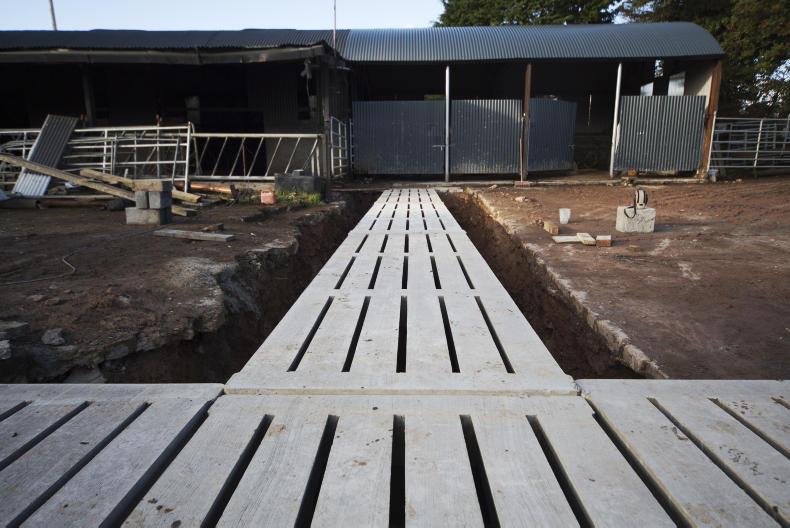On Tuesday 13 February, the Agricultural Consultants Association held an information meeting in Cavan on current slurry issues and the new nitrates directive.
Jack Nolan from the nitrates division of the Department of Agriculture was speaking at the event and gave a practical breakdown of what the new regulations will mean for farmers.
An issue that was raised by Jack, and echoed by those in attendance, was the issue around slurry storage on farms.
Listen to "Slurry Issues" on Spreaker.
“Four-hundred million gallons of extra storage is required for the 300,000 extra dairy cows that we have on Irish farms in the past seven years,” according to Jack.
This requirement is to cater for both the extra slurry and soiled water produced from these cows.
“Over the past few years, investment has gone into milking parlours and new cubicle sheds, but farmers now need to look at other infrastructure around their farmyard, including slurry storage and silage slabs, among other things,” Jack continued.
Under nitrates regulations, the requirement for farmers in Cavan is to have 22 weeks of storage for organic fertilisers. This requirement varies from 16 weeks to 22 weeks depending where in the country you are located.
The general consensus from the crowd was that, in extreme years like the one we have just experienced, the level of storage on some farms that struggled to get slurry out last autumn is not sufficient and that farmers need to have a reserve of storage available.
“Dairy intensification is a major challenge. We need to be proactive, not reactive to expansion,” said Jack. “There are currently 7,000 farmers in derogation in the country and if we wish to keep derogation post-2021, then we need to ensure that we continue to improve our waterways, which means that we have no run-off from slurry, effluent or from farm roadways.”
In a rule change, any farmer who applies for derogation this year will be required to have sufficient storage to cope with the increased slurry by April 2019, according to Jack.
TAMS
The current conditions of TAMS mean that if a farmer does not have sufficient storage for the number of livestock that they have on the farm, they are ineligible for grant aid.
As it is a legal requirement for farmers to have sufficient storage for their livestock, grant aid cannot be given to make someone legal, according to Jack.
He added that there is no way that the rules can be changed under the current CAP. However, it is something that could be looked at post-2020.






 This is a subscriber-only article
This is a subscriber-only article










SHARING OPTIONS: